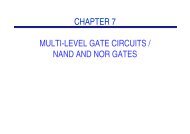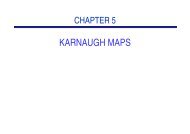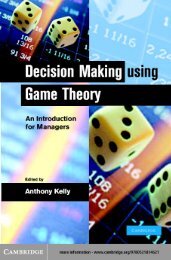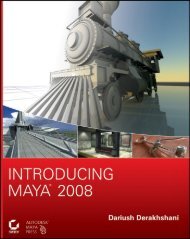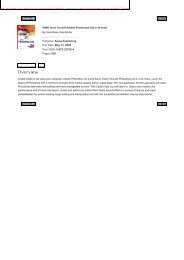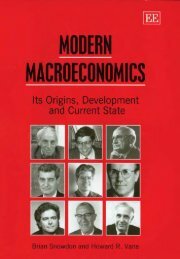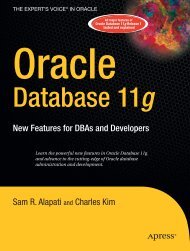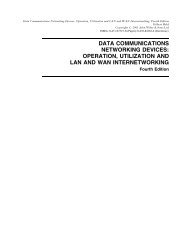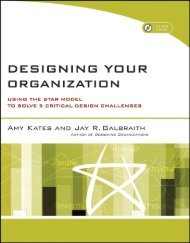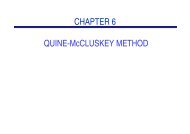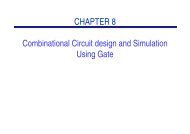The Economist December 1st 2007 - Online Public Access Catalog
The Economist December 1st 2007 - Online Public Access Catalog
The Economist December 1st 2007 - Online Public Access Catalog
- No tags were found...
Create successful ePaper yourself
Turn your PDF publications into a flip-book with our unique Google optimized e-Paper software.
Thabo MbekiMystery manNov 29th <strong>2007</strong>From <strong>The</strong> <strong>Economist</strong> print editionReutersA profound sense of disconnection is the key to understanding South Africa's enigmatic and controversial president, as a longawaitedbiography makes clearAS THE African National Congress (ANC) prepares later this month to elect the man who will lead it for the next five years,there is more interest than ever in Thabo Mbeki. Barred from running in 2009 for a third term as South Africa's president,Mr Mbeki, who is also the current head of the ANC, is one of the front-runners for re-election to the top party job.Thabo Mbeki: <strong>The</strong>Dream DeferredBy Mark GevisserHowever, after 13 years in power—first as Nelson Mandela's deputy before succeeding him in 1999—the president hascome to be respected or loathed, but hardly ever loved. Even among his closest followers, Mr Mbeki remains an enigma.Some consider him to be a cool-headed and visionary moderniser, others a scheming centraliser who will not toleratedissent.Mark Gevisser, a South African journalist, has spent eight years working on his biography of the president, which so far ispublished only in his home country. He has studied hundreds of documents and interviewed more than 200 people,including, at length, Mr Mbeki himself. Mr Gevisser's book retraces in great detail the president's life from his childhood inrural Transkei to his 28 years in exile and his ascent to power. In the process he sheds considerable light on more than halfa century of South Africa's difficult history.Jonathan Ball Publishers;892 pages; 225 rand<strong>The</strong> book's title comes from a poem by Langston Hughes, a black American poet, that Mr Mbeki often cites. <strong>The</strong> “dream deferred” is not only that ofa nation which is still struggling to close the gaps between black and white, and rich and poor, but, as the author asserts, also Mr Mbeki's own. Oneof the book's most important themes is how disconnected Mr Mbeki appears to be from his roots and his country, and how this has influenced hisopinions and behaviour.Mr Mbeki's father was an anti-apartheid hero. Both he and Mr Mbeki's mother were also communists. Both came from families of educated blacklandowners. Despite that, Mr Mbeki's family history is one of destitution, as apartheid systematically destroyed black hopes and opportunities. It isalso one of loss: Mr Mbeki's only son, fathered when he was still a teenager, disappeared without trace in the early 1980s, as did his youngerbrother. Mr Mbeki followed in the steps of his distant father by sublimating his emotions into the anti-apartheid struggle, which became his life. Hefound a surrogate family in the party and a spiritual father in Oliver Tambo, who led the ANC in exile.According to Mr Gevisser, Mr Mbeki's vision of an African renaissance is an attempt to overcome the damage done by this sense of disconnectionand to resurrect his continent's feeling of pride and identity. His yearning for a specifically African approach to the continent's problems is thereason why he continues to question so strongly the supposedly “Western” view that HIV causes AIDS, and hence opposes proper treatment of thedisease. Astonishingly, Mr Gevisser reports that Mr Mbeki has not changed his weird and destructive views on HIV/AIDS. Furthermore, he evenregrets having kept silent on the subject over the past few years.Another constant is Mr Mbeki's obsession with conspiracy—against him personally or against Africa at large. Plotters include ruthlesspharmaceutical companies, political rivals, an unfair world order, the media, or the white business sector—which he often describes as being full of“counter-revolutionaries” and racists.What happened, then, to the man once described as “the ANC's Crown Prince Charming”, the moderate voice of reason that reassured businessand even some white hardliners in the 1980s and early 1990s? <strong>The</strong> author argues that Mr Mbeki used his charm strategically. Once in power, hepreferred to focus on his quest for Africanness. He was also keen finally to come out of the shadow of his elders. “He knew that because peoplewould never love him the way they did Madiba [Mr Mandela], they would need to respect him, even if it meant fearing him.”According to Mr Gevisser, the extreme prickliness Mr Mbeki commonly shows when faced with criticism is also the result of the terrible frustrationhe feels at being unable fully to deliver on the impossible expectations of his fellow South Africans. “Liberation movements are driven by dreams,and the ANC has been no exception,” the author writes. “But its history in government has been a perpetual scaling back of these dreams.”Uncharismatic and unable to charm a crowd, he is instead an expert navigator of the corridors of power. Mbeki's understanding of power is that “itis both gained and conceded through conspiracy,” Mr Gevisser writes. He “might have modernised the ANC with extraordinary vigour when it cameto ideology and economic policy, but he would hold to the exile's understanding of politics—and the outlawed freedom fighter's experience ofintrigue—throughout his years of power.”Mr Gevisser tries hard to be fair. It would have been interesting to hear more of his personal views, yet he does not voice any conclusive judgmentabout the president, wanting instead to “stand on his subject's shoulders” to see the world through his perspective. Nevertheless, his book explainsmuch about the very private Mr Mbeki. That alone makes it essential reading for anyone intrigued by South Africa's complex philosopher-king.Thabo Mbeki: <strong>The</strong> Dream Deferred.By Mark Gevisser.Jonathan Ball Publishers; 892 pages; 225 randCopyright © <strong>2007</strong> <strong>The</strong> <strong>Economist</strong> Newspaper and <strong>The</strong> <strong>Economist</strong> Group. All rights reserved.



